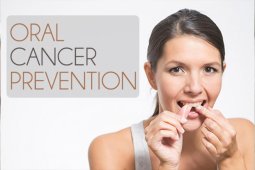Oral Cancer Screening Made Simple- SELF HELP GUIDE
Apr 19, 2022
Oral Cancer is a disease of habit. A habit that goes against self detection screening and consulting a specialist. If you have a habit of chewing tobacco, eating gutka, khaini or supari- you should refer to the self help guide given below!

Screening for Risk Factors:
- The major risk factors for Oral Cancer are – Alcohol & Tobacco.
- The combination of smoking and alcohol seems to present the greatest risk for patients.
- Other factors that are considered potentially causative include virus, diet, radiation exposure, immunocompetence, and even mouthwash.
The following is a SELF HELP GUIDE for Oral cancer screening. The same lists all the risk factors and a person should do his/her own self assessment according to the same.
1. SMOKING
Specific questions:
- The duration of the smoking habit
- The type of smoking pursued (eg, cigar/pipe, cigarette)
- The duration of smoking abstinence (if a prior history exists)
- Use of smokeless tobacco
Reference: The risk of the development of oral cancer is significantly greater for smokers than non smokers. The ratio is 10:1. One important consideration is the duration of the habit, as the risk of death has been found to be directly related to the number of cigarettes consumed daily. With former smokers, at least one study suggests that at least a 50% reduction in risk occurs in the first 3-5 years of smoking abstinence. In terms of the type of smoking habit pursued, some evidence exists that cancer risk may be higher for individuals using cigars or pipes. Data does not seem to be available regarding commercial versus “handmade” cigarettes, whether filtered or unfiltered. All smoking habits should be considered equivalent in terms of cancer risk screening.
2. ALCOHOL CONSUMPTION
- Alcohol intake
- Do you take it every day?
- Do you see any change in your oral health due to high alcohol consumption?
Reference: An important history question is the amount of intake. The degree of consumption appears important, whereas the type of alcohol consumed does not appear to make any difference in terms of risk. Research highlights that risk of oral cancer is highest when patients are heavy smokers and heavy drinkers.
3. VIRUS
- Are you experiencing any change in your oral health?
- Are you experiencing any puss formation, white red patches or ulcers in your mouth?
Reference: The human papillomavirus and herpes simplex virus are responsible for interacting with oncogenes and tumor suppressors. They have been suspected for increase in Oral Cancer incidence.
The viruses can also cause the mutation of the mouth cells- squamous epithelial cells- leading to oral cancer.
4. Other Factors:
- Are you experiencing any loss of immunity?
- Are you experiencing any loss of diet?
Reference: There are certain items such as mouth wash that can also cause oral cancer. Oral Cancer initial signs can be loss of diet and immunity. Several studies suggest that a low intake of fruits and vegetables may increase the risk of oral cancer. Low levels of vitamin C may increase the risk of cancer in the oral cavity.
If you notice that as per the risk factors and the reference you are falling in the red zone, it’s better that you consult a specialist! You should remember that the key of prevention and early detection is with you alone.







